International
‘Man of the hole’ dies, last known survivor of Amazon tribe
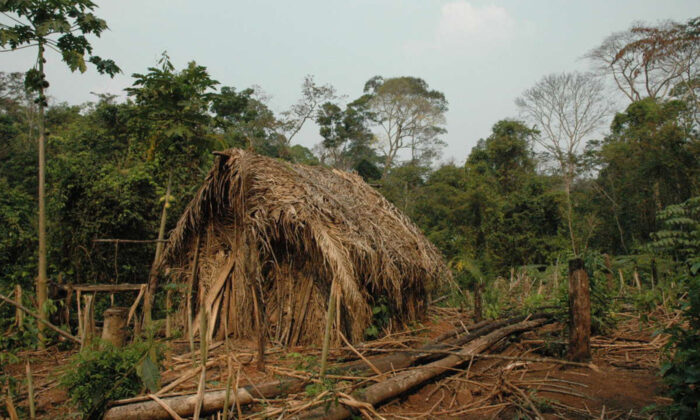
AFP | by Ramon SAHMKOW
For more than 20 years he lived alone in the Brazilian Amazon eating nuts, fruit and game — a symbol of the struggle of indigenous people who exist in isolation in the rainforest.
Now this man whose very name was unknown is dead, and his passing has made headlines around the world.
His life was marked by massacres that left him as the lone survivor of a small tribe attacked by gunmen apparently hired by ranchers seeking to exploit the pristine Amazon.
He was found dead lying in a hammock on August 23 in Tanaru Indigenous Territory. Authorities found no signs of violence and believe he died of natural causes.
The man was covered in the bright feathers of a bird called the guacamaya, a kind of macaw, local news reports said.
The Tanaru Indigenous Territory covers 8,000 hectares (30 square miles) of protected rainforest in Brazil’s southwestern Rondonia state, bordering Bolivia. The reserve is surrounded by sprawling cattle ranches.
Rife with rogue miners and wood cutters whose work is illegal, it is one of the most dangerous regions of Brazil, according to the Survival International NGP.
The Tanaru land “is like an oasis of green in the sea of destruction,” said NGO director Fiona Watson.
An arrow shot
The “man of the hole” was first spotted in 1996 by a documentary team traveling with officials of the National Indian Foundation, a government agency that was probing a massacre committed against his tribe.
Proving the presence of indigenous people in the Tanaru forest area was necessary in order to grant the area legal protection.
The footage was featured in a documentary called “Corumbiara” in 2009.
In it, the man’s eyes are seen peering out from inside a straw hut. A spear pokes out at one point, as if to scare visitors away. But no one utters a word.
Over the years Funai teams came back with representatives of neighboring tribes to try to determine what language the man spoke and learn more about his people.
But he made clear he did not want to engage anyone. Feeling threatened, one time he shot an arrow that left a visiting team member seriously wounded.
“One can only imagine what this man was thinking, going through, living on his own, not able to speak to anybody and I think very frightened because any outsider for him represented a threat, given his terrible experience,” Watson said.
After that, authorities just tried to patrol his territory and look for signs that he was still alive.
In the last known footage of him alive — shot in 2011 but not released until seven years later — he is seen semi-naked cutting down a tree with an axe.
Besides bows and arrows that showed he hunted, there were gardens where he grew fruit and vegetables, such as papaya and manioc.
“We saw one of his gardens and it was full of produce — very beautifully kept,” said Watson who visited the site in 2005.
But what most fascinated researchers were the many holes he dug — some two meters (seven feet) deep and with sharp spears at the bottom.
Funai said officials found 53 places that had been his home in the Tanaru territory, always with the same structure: a small straw hut with one door and a hole.
The holes were used to trap animals but experts think they may also been a place for him to hide from intruders or had some kind of spiritual purpose.
The holes, Watson said, are “a mystery that has died with him,” as is the history of the Tanaru people.
Funai has identified 114 indigenous groups that live in isolation in Brazil’s part of the Amazon.
International
Colombia slams Ecuador’s 30% tariff as ‘economic aggression’
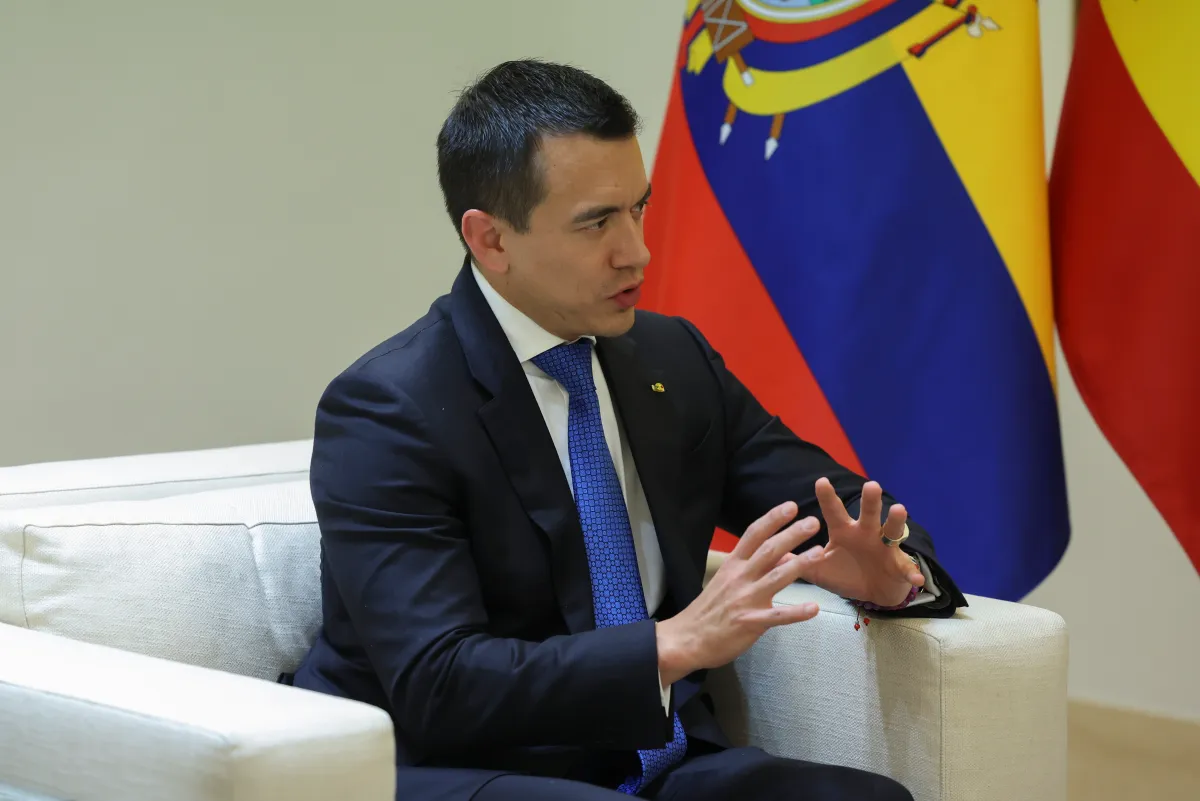
Colombia’s Minister of Mines and Energy, Edwin Palma, on Wednesday described as an “economic aggression” the 30% “security fee” imposed by Ecuadorian President Daniel Noboa on imports from Colombia.
“We reject the tariff measure imposed by Ecuador, an economic aggression that breaks the principle of regional integration,” Palma said in a post on X.
President Noboa explained that the decision was taken due to what he described as a “lack of reciprocity and firm actions” by Colombia in the fight against drug trafficking. He added that despite Ecuador having made “real efforts of cooperation,” including maintaining a trade deficit exceeding $1 billion annually, the country’s armed forces continue to face drug-linked criminal groups along the border without any cooperation.
For that reason, Noboa stated that the measure will remain in place “until there is a real commitment” from Colombia to jointly confront drug trafficking and illegal mining along the 586-kilometer shared border, with the same level of determination Ecuador is currently applying.
According to official data, Ecuador seized 214.5 metric tons of drugs in 2025, down from the record 294.6 tons confiscated in 2024.
Colombian President Gustavo Petro said on January 7 that during his administration, which began on August 7, 2022 and ends this year, drug seizures have increased significantly, adding that total confiscations are expected to exceed 3,500 tons by the time he leaves office.
International
José Jerí claims destabilization attempt after videos of secretive meetings surface
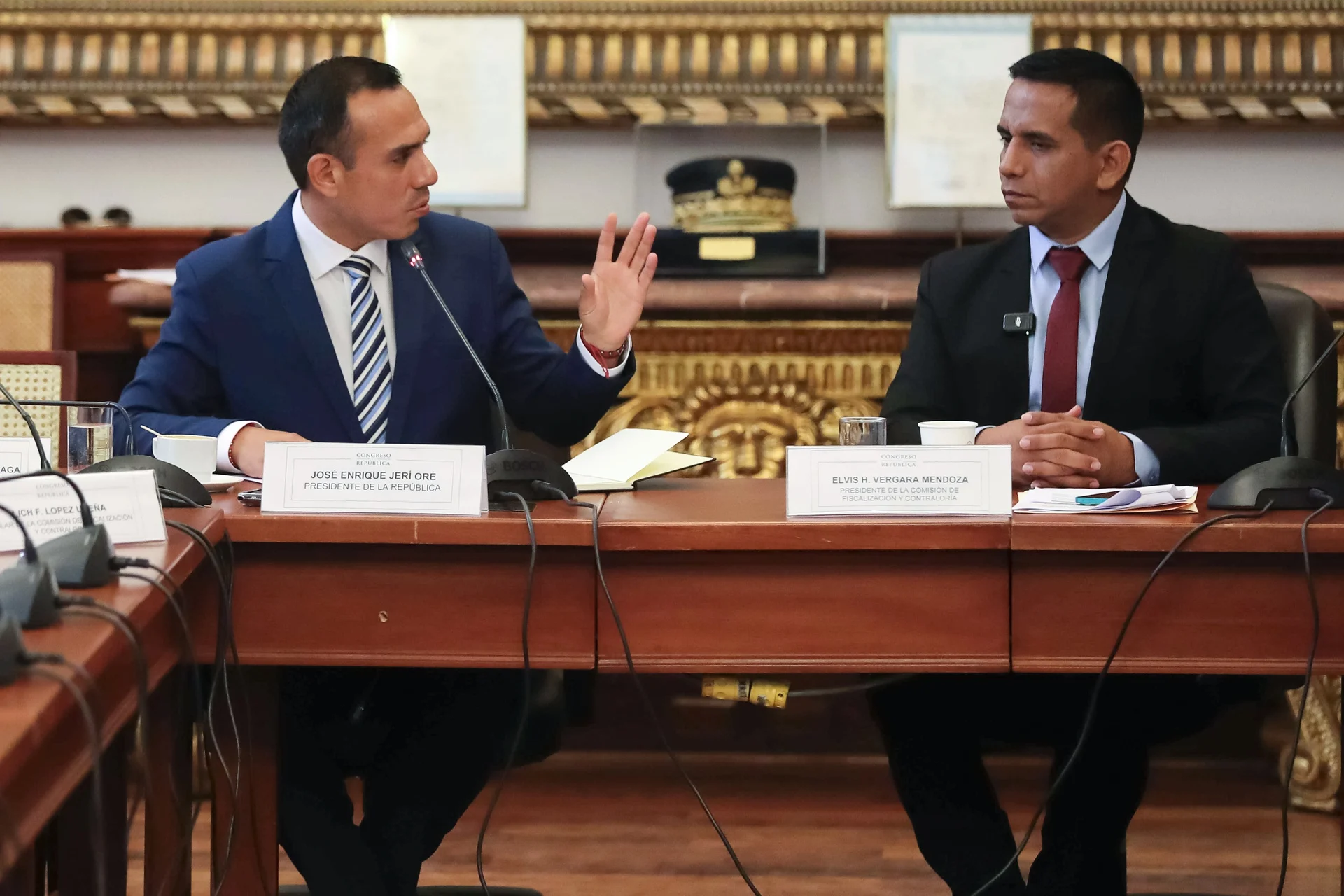
Peru’s interim president, right-wing leader José Jerí, on Wednesday denounced an alleged plot against him and warned of a deliberate attempt to destabilize the country, following the release of a series of videos showing semi-clandestine meetings with a Chinese businessman, as well as visits to the Government Palace by another businessman of the same nationality who is under house arrest.
“I also want to know who is behind this entire plot. I am an objective and impartial president who does not give in to pressure, but someone has found a way to do so. I want to know who is behind it and what their real objective is,” Jerí said while appearing before Congress’ Oversight and Comptroller Commission.
The interim president, who recently marked 100 days in office after replacing former president Dina Boluarte (2022–2025) in his role as head of Congress, insisted that he has never lied to the country. Without directly accusing any individual or group, he argued that routine activities—such as visiting a restaurant or a shop—are being portrayed with a “malicious” intent.
So far, reports indicate that on December 26, close to midnight, Jerí visited a chifa restaurant—a Peruvian-Chinese eatery—owned by Chinese businessman and state contractor Zhihua “Johnny” Yang, accompanied by Interior Minister Vicente Tiburcio, and wearing a hood. On January 6, he also visited a shop belonging to the same businessman, which had been shut down by municipal authorities just hours earlier.
The revelations have fueled political controversy and renewed scrutiny of the interim administration’s actions amid Peru’s ongoing political instability.
International
Mexican influencer “La Nicholette” kidnapped in exclusive area of Culiacán
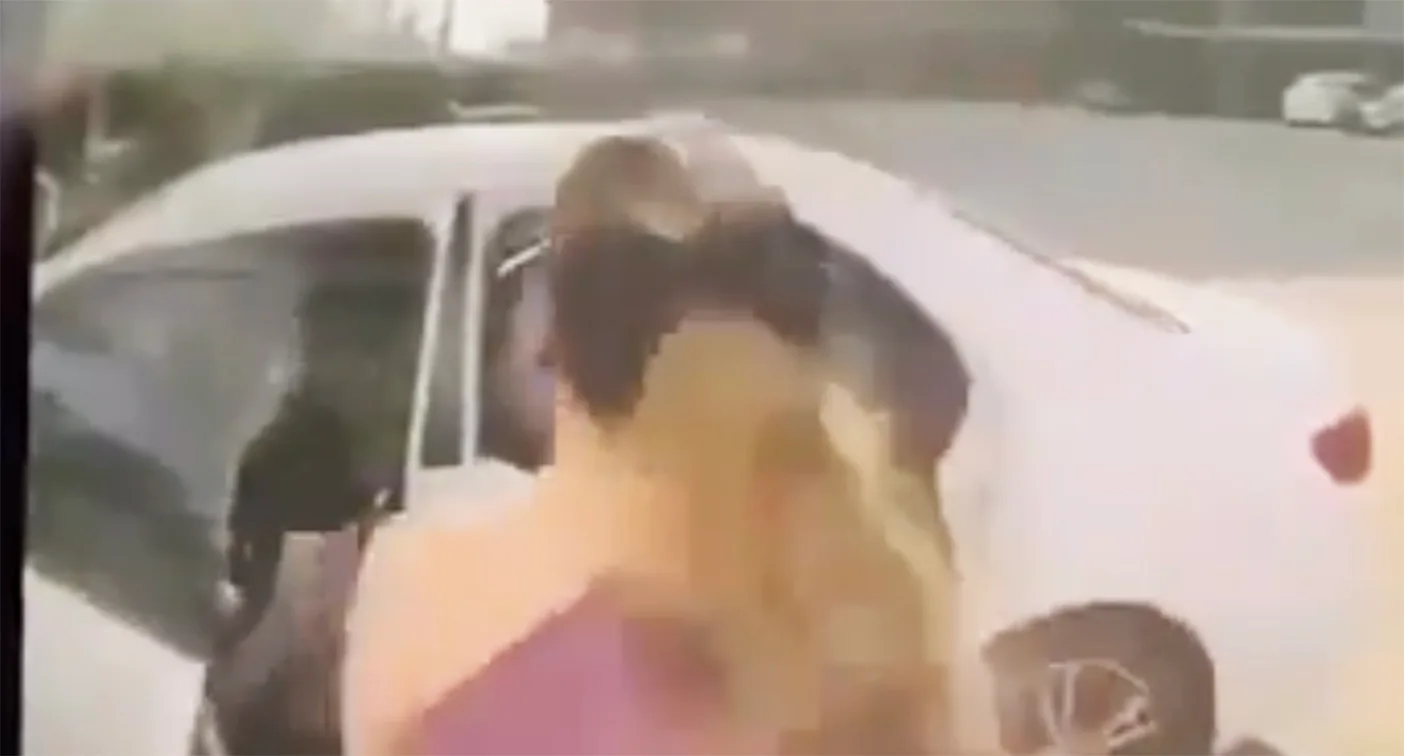
The content creator known as “La Nicholette,” also referred to as “La Muchacha del Salado,” was kidnapped Tuesday afternoon in Isla Musalá, one of the most exclusive residential areas of Culiacán, capital of the northern Mexican state of Sinaloa, according to local media reports on Wednesday.
The abduction was captured by the security camera of the young woman’s vehicle, a lilac-colored Tesla Cybertruck, which was later found abandoned at the scene.
Video footage circulating on social media shows a masked man carrying a long firearm preventing the influencer from entering her vehicle, while another individual forces her into a white sedan, reportedly an older-model Toyota Corolla.
According to media reports, the incident occurred at approximately 5:00 p.m. local time (2300 GMT) at the intersection of Tachichilte Avenue and San Esteban Street, within the Musalá residential area.
Authorities have not yet released official details regarding the victim’s whereabouts or the motives behind the kidnapping.
-

 International4 days ago
International4 days agoU.S. deportation flight returns venezuelans to Caracas after Maduro’s ouster
-

 International2 days ago
International2 days agoDeath toll from southern Spain train crash rises to 40
-

 Central America2 days ago
Central America2 days agoGuatemala raises police death toll to nine after gang violence escalates
-

 Central America3 days ago
Central America3 days agoGuatemala prison uprisings leave 46 guards held by gangs
-

 International2 days ago
International2 days agoOver 160 christian worshippers kidnapped in Kaduna Church attacks
-
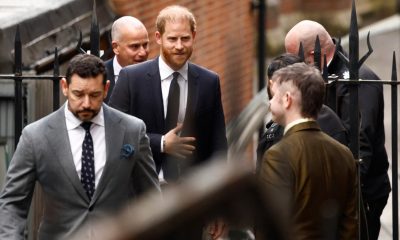
 International1 day ago
International1 day agoDaily Mail publisher insists reports relied on legitimate sources amid privacy trial
-
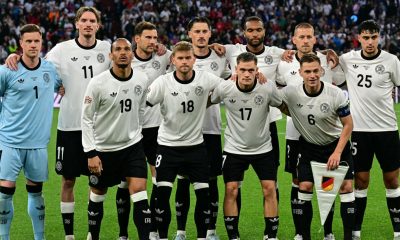
 International1 day ago
International1 day agoGermany says football bodies alone will decide on possible World Cup boycott
-

 International4 days ago
International4 days agoFormer South Korean President Yoon sentenced to five years in prison
-

 International3 days ago
International3 days agoChile declares state of catastrophe as wildfires rage in Ñuble and Biobío
-

 International2 days ago
International2 days agoSpain’s Prime Minister pledges transparency after train crash kills at least 39
-
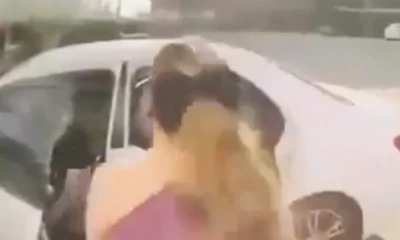
 International2 hours ago
International2 hours agoMexican influencer “La Nicholette” kidnapped in exclusive area of Culiacán
-

 International2 hours ago
International2 hours agoTrump announces preliminary NATO agreement on Greenland, suspends tariffs on Europe
-

 International2 hours ago
International2 hours agoMajor winter storm to blanket U.S. and Canada with snow, ice and arctic cold
-
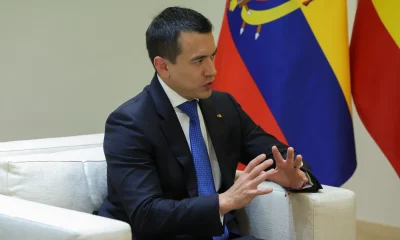
 International1 hour ago
International1 hour agoColombia slams Ecuador’s 30% tariff as ‘economic aggression’
-
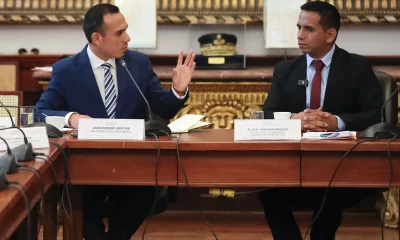
 International1 hour ago
International1 hour agoJosé Jerí claims destabilization attempt after videos of secretive meetings surface


























